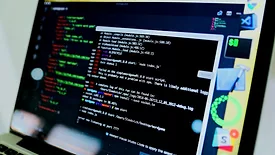Home » Keywords: » security compliance
Items Tagged with 'security compliance'
ARTICLES
Integrated Solutions
AI, Compliance, and a New Era of Cybersecurity
Cybersecurity compliance has been forever changed by artificial intelligence.
October 3, 2025
Sign-up to receive top management & result-driven techniques in the industry.
Join over 20,000+ industry leaders who receive our premium content.
SIGN UP TODAY!Copyright ©2026. All Rights Reserved BNP Media.
Design, CMS, Hosting & Web Development :: ePublishing
.webp?height=168&t=1769625646&width=275)




.webp?height=168&t=1744032434&width=275)
.webp?height=168&t=1739138241&width=275)
.webp?height=168&t=1737561882&width=275)
.webp?height=168&t=1736946657&width=275)
.webp?height=168&t=1733511628&width=275)

